CEO Takeshi Idezawa's Thoughts on the Start of a New Voyage: "Creating a New Future with Comrades Who Enjoy Change"
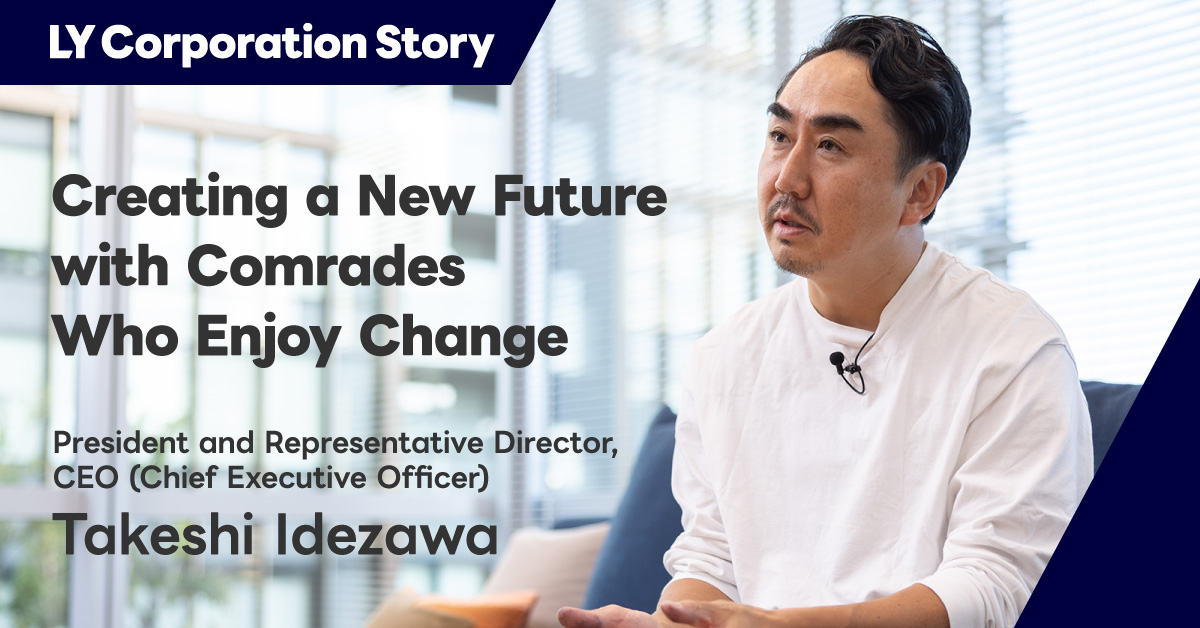
"The LY Corporation Story" is a corporate blog that will share the inside story behind our challenges past, present, and future as well as the various thoughts and feelings behind them as told through interviews with executives and employees. For our very first interview, we sat down with none other than Takeshi Idezawa, the President, CEO, and Representative Director of LY Corporation.
"The road that has brought us to where we are now has been a series of changes and challenges."
While pioneering and driving innovation in the IT industry, Mr. Idezawa has also experienced his fair share of corporate integrations and mergers during his tenure in corporate leadership.
After starting out in the insurance industry fresh out of college, his career took a major turn when he made the switch from insurance to IT, which was like a whole-new world for him. And yet, throughout his entire career, he has always looked ahead to a brighter future. In our interview, we asked him about the future that he hopes to bring forth, the crises that he has overcome to date, and the experiences that served as major turning points for him.
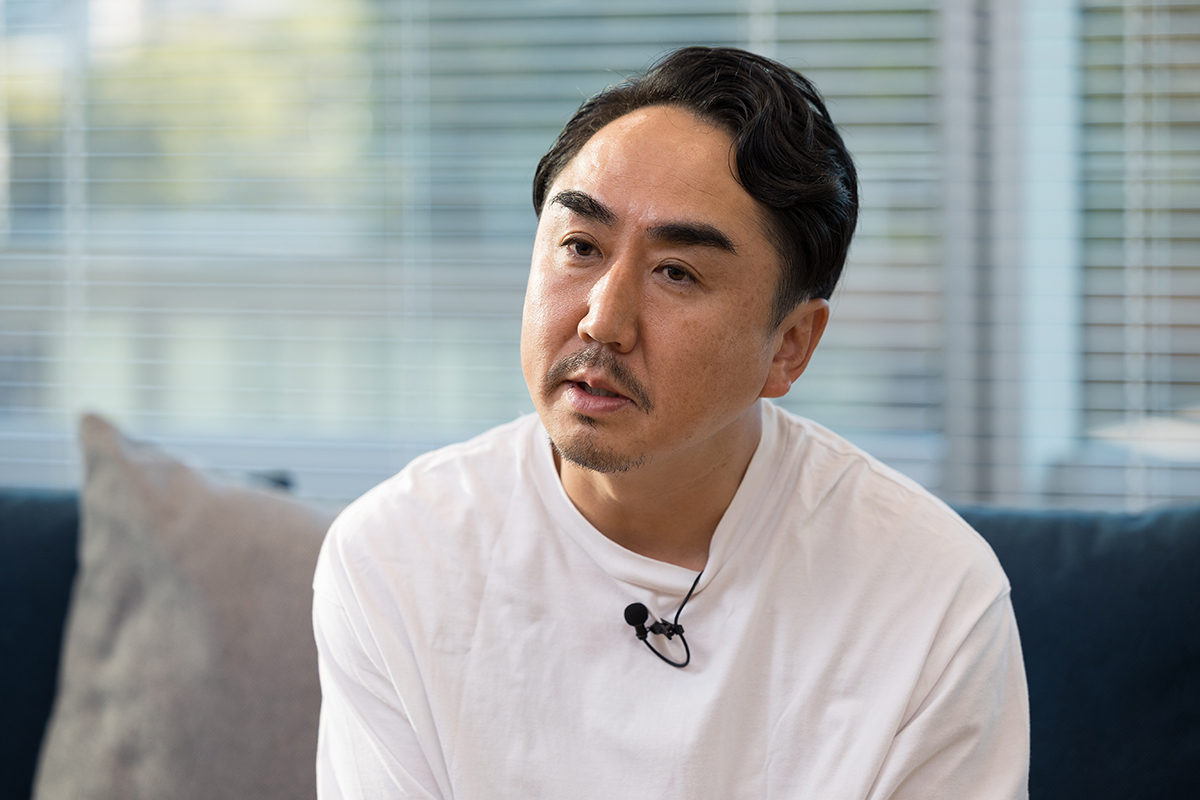
Takeshi Idezawa
Takeshi Idezawa began working at a life insurance company after graduating from Waseda University. After working in sales for a while, he switched over to Livin' on the Edge Co., Ltd. in 2002. In April 2007, he was appointed as the President and Representative Director of livedoor Co., Ltd., where he tackled the challenges of overhauling the company's management. Within just 1.5 years, he was able to get the company back in the black for the year in full.
After the buyout and integration of management, he was appointed to the Board of Directors at NHN Japan Corporation in January 2012. He remained on as director when NHN Japan Corporation changed its name to LINE Corporation in January 2014 before going on to become the President, CEO, and Representative Director of LINE Corporation in April 2015. After his appointment as Co-CEO and Representative Director of Z Holdings in March 2021, he became the President, CEO, and Representative Director of LY Corporation in October 2023.
Takeshi Idezawa hails from Nagano Prefecture and is the father of two children. His hobbies include camping, and his specialty dish is spaghetti aglio.
His personal motto is "Carpe Diem" (which is Latin for "Seize the day.").
While working for an insurance company, he was seconded to a startup venture, where he was fascinated by the excitement and possibilities of IT.
――Before you started your first career, what were your student days like?
Having moved from the much more rural Nagano Prefecture, I immersed myself in various subcultures during my college days in Tokyo. I read countless books while working part-time at a bookstore. I also really got into mahjong and video games. Although I was a late comer to the job hunt, I managed to find work at a life insurance company when I graduated in 1996. I worked in retail sales at the Hachioji Branch and gained some experience with organizational management during my four or five years there. At the same time, I found myself struggling to figure out my future career plans. Just then, I was given the opportunity to work at Livin' on the Edge(*) as a seconded employee thanks to an internal "study abroad" program at my company. The opportunity presented itself because Livin' on the Edge (an IT startup) and my company at the time were planning to launch an online insurance business through a joint venture.
- *Livin' on the Edge
- Founded by Takafumi Horie in 1996, Livin' on the Edge would go on to change its trade name to livedoor in 2004. In October 2022, livedoor was reborn with the founding of a new livedoor Co., Ltd.
Livin' on the Edge was a completely different environment for me. The history, scale, and type of business were all different from what I was used to, but the experience gave me a taste of the excitement of working in the IT industry. The Internet itself had only begun to really catch on in Japan around 1995, so the industry was growing by leaps and bounds at the dawn of the Online Era. I believe that what makes the Internet so special is how it empowers individuals, magnifying their power by orders of magnitude. In those days, it was easy to experience this sense of empowerment for myself, and so I was very much drawn into that world.
――How did you feel about the different environment? And what made you decide to change careers?
Even as a complete newcomer to the industry, I soon had opportunities to propose plans to big, well-known companies. I was working together on the same team as engineers and designers, with everyone collaborating to create new products, and I found the whole process quite fascinating. I felt that the work that I was doing was having a real impact on society at large.
Indeed, a single person could have an enormous impact on society, which gave me a strong sense of the "possibilities" of the Internet. More than anything else, I got to experience first-hand just how "exciting" the Internet could be.
From the beginning, I was only supposed to be seconded for one year, but I found myself struggling to decide whether I should return to the more stable organization and environment of my original job. In the end, however, I decided to make a leap of faith and change companies. One of the things that attracted me was the organization, which had the mobility to move swiftly and freely, driven by youthful leadership.
Not long after making my career change, I was put in charge of the company's mobile business, which would grow from a one-man operation to a major organization with around 100 people as the business grew to become quite profitable. As the person in charge, I had built a business and organization up from nothing and turned them into a major success, and I like to think of this experience as my first major turning point.
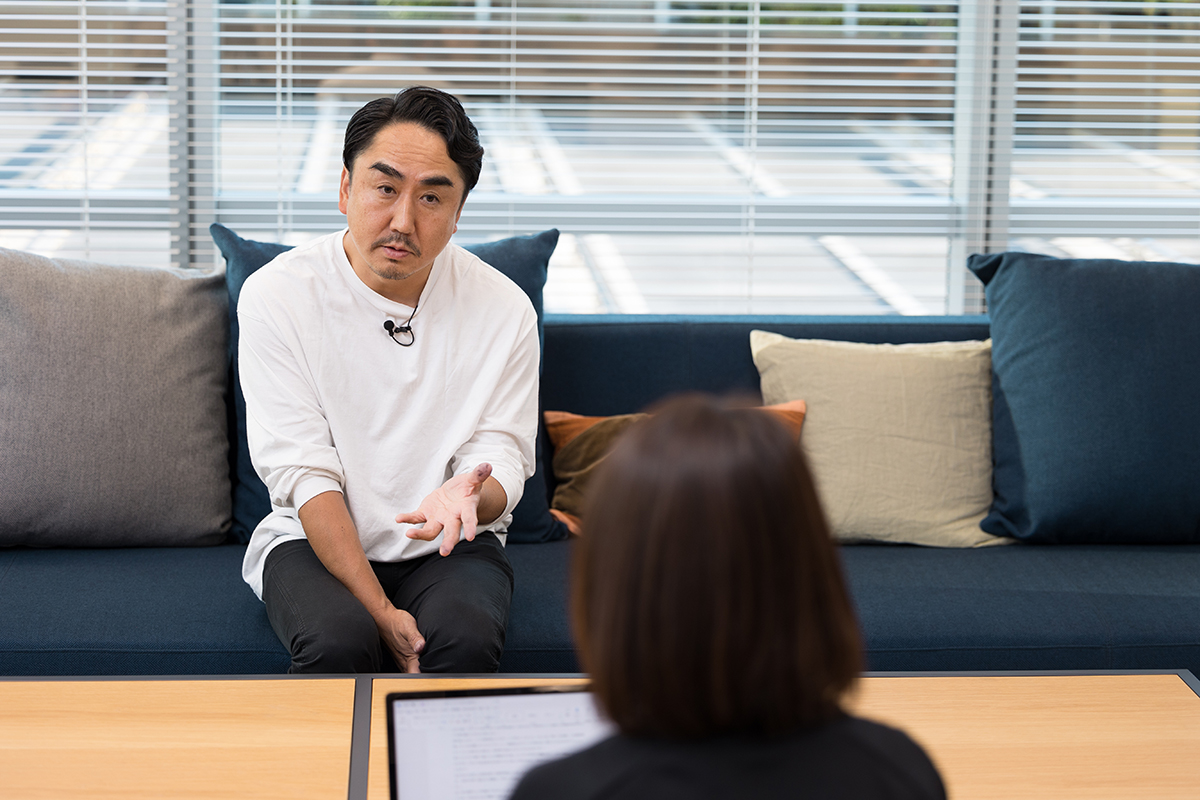
Placed in charge of a company in crisis mode, he made every effort to protect both products and users.
――I am sure that it was not all smooth sailing, though. Did you also face your fair share of difficulties?
The so-called "Livedoor Scandal" occurred in 2006, kicking off a series of events that included my appointment as company president 2007. This was my second turning point.
Having formed a team together with members from diverse backgrounds within the company, we soon had to face off with investors both in Japan and overseas in order to protect the company as our reputation hit rock bottom among society at large.
At the same time, motivation was also plummeting throughout the company. I was under enormous pressure to drag the company out of the doldrums and get it back on its feet, and this experience would be my greatest turning point of all.
――As a business leader, how did you overcome these difficulties? What were the main points?
I had strong desire to protect the corporate culture of those days, as I had grown quite attached to this culture. The previous leadership understood the importance of engineering, and the company never wavered in its "product first" approach. It was a company born from an engineering mindset, which is a rarity in Japan these days.
This way of thinking led to a free and open corporate climate, where delegation to the front lines of the business came naturally. Even after the scandal, our number of users continued to grow, and our desire to respond to the expectations of our users became a strong source of motivation for us.
Looking back at those days, I believe that I was able to handle things much more calmly than even I would have expected because I had simply made up my mind and just kept working with a clear focus on what needed to be done.
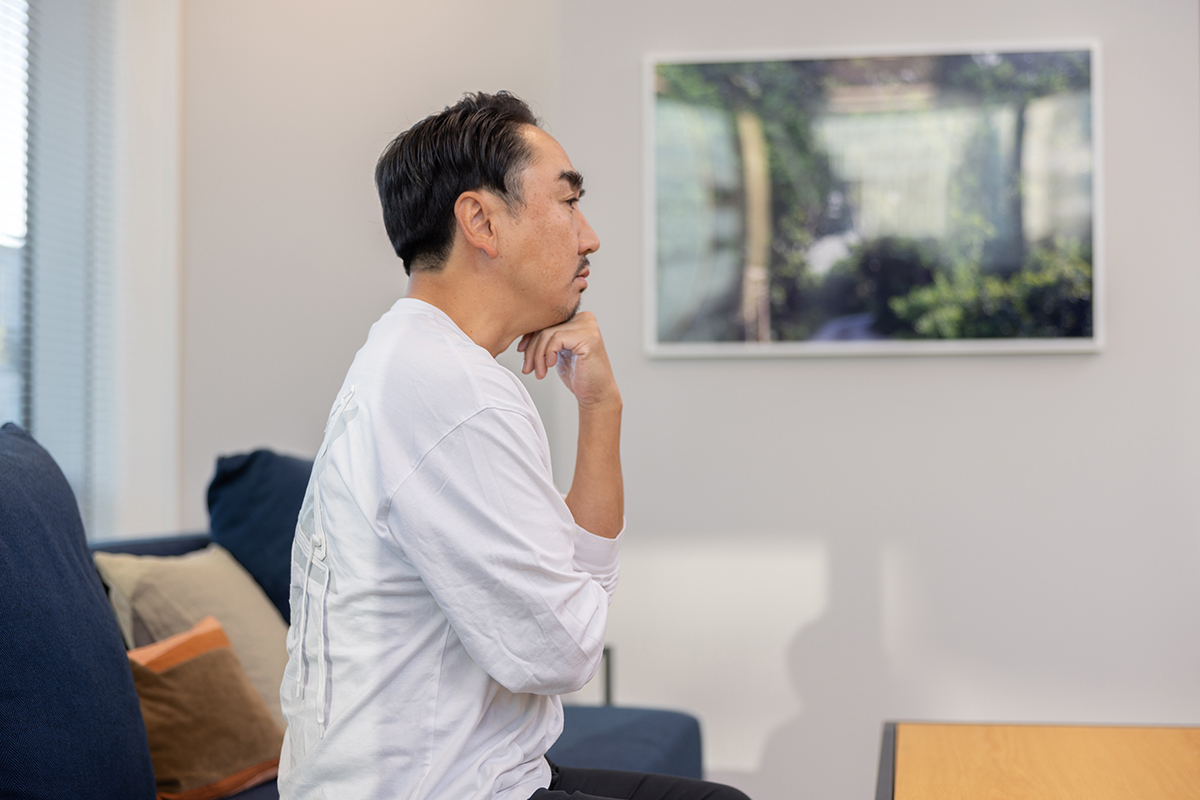
The values that he holds dear as a business leader.
――Amid all of these new organizational shakeups, how did LINE come into being?
In 2010, livedoor was bought out by NHN JAPAN Corporation. At the time, we had quite a few difficulties when it came to bringing together the different cultures of the two companies. To tell the truth, there were even a few conflicts during the merger process. Nevertheless, we did not have much time to spare for resolving these problems, as our company could not survive without our users, which meant that we had to put them first. It was at the very height of this crisis that our messaging app, LINE, came into being in 2011.
LINE was the culmination of all of the hard work and outstanding leadership that our CPO, Jungho Shin, brought to the table. He is always fond of saying things like "grit" (i.e., perserverance and determination) and "Let's make lots of mistakes." And so, when it came to breaking into the smartphone app market (a completely new field for us), he made up his mind to "create hundreds of new products and bring about massive change" and then set about doing exactly that through repeated trial and error. The end result of all of this trial and error was LINE, and the birth of LINE worked wonders in terms of bringing the new organization together at much greater speed.
――What do you consider to be important when bringing multiple companies together, and what do you hope to achieve with our recent merger?
I think that it is very important to share with everyone a clear vision in terms of "what we are going to do" and "what mountains we are going to climb."
Looking back over my experience to date, when it came to bringing together our organizations in the wake of the Livedoor Scandal, we were motivated by our simple desire to rebuild, to protect our corporate culture, and to once again be recognized for the products that we were making. With LINE, we were driven by a shared sense of crisis in the sense that our company could not survive if things kept going the way they were. That is why we were able to put everything on the line with smartphones, backed by our belief that smartphones represented the next great frontier.
The recent integration and merger of LINE and Yahoo! JAPAN came about because our views were aligned on what needed to be done in a GAFA-dominated world. Both sides agreed that there was no point in us competing with each other in Japan and that we would have no future at all if we did not create the best products that Japan could muster and bring these to the whole world.
One of the characteristics of the IT industry is the fact that exceptional talent, enormous data, and funds tend to be concentrated around the strongest companies, even across borders. The industry is structured such that strength perpetuates greater strength. At the same time, tech is a key industry in every country, while the Internet also has enormous cultural significance as the embodiment of entire languages and cultures.
This is all the more reason why I want for LY Corporation to be a company that is fit to represent Japan. It is also why I want to make sure that we do not stumble when it comes to passing the baton on to the next generation. If we fail in this, who knows what effects it may have on the strength of our nation and culture. While there is room to debate whether such changes will lead to a better future or a worse future, I am determined to tackle these challenges with a full awareness of what is at stake.
――From major decisions about the future to day-to-day decision-making, what do you think is important for a corporate leader?
I make an effort to ask myself on a regular basis, "What needs to be done at a fundamental level?"
At the same time, it is also important to look at things with a view toward the mid-to-long term, so another essential question is, "Am I heading toward the right future?" If you are moving toward solving issues and problems at a fundamental level, then you are on a path that will surely lead to the right future.
When I talk about "the right future," what I mean is a future of continuous, sustainable growth. When you are running a business, you often find yourself in situations where you have to ask, "This may produce profit in the short term, but what kind of value will it lead to over time?" There is often a tradeoff between the profits within our grasp and long-term growth.
At the end of the day, it is important to think about whether something will contribute to the foundations of our products and our talent pool and whether it will ultimately lead to sustainable growth. This is the kind of perspective that I hold dear.
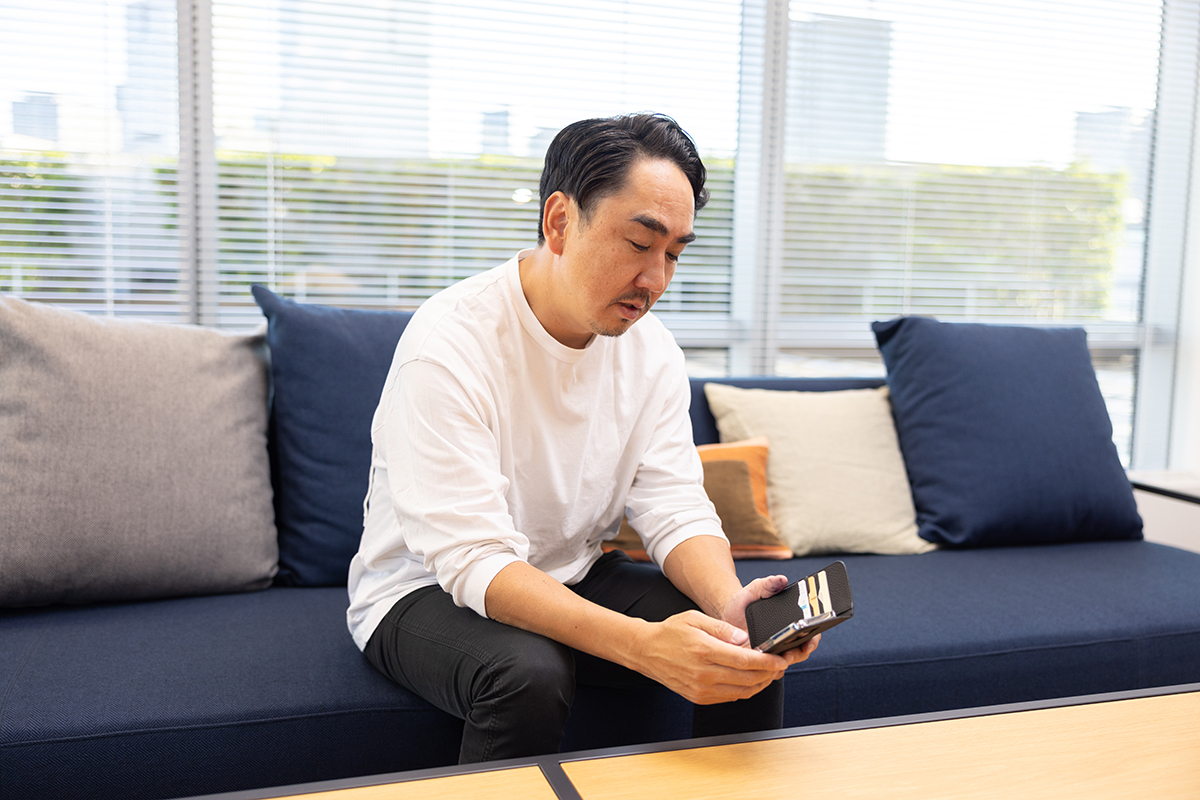
He envisions a group that enjoys change and is nimble enough to respond with "Well then, shall we dance?"
――What kind of organization are you hoping to build up with LY Corporation?
I keep saying, "Let's enjoy change." It all starts with having a mindset of "Let's try and see what happens." Instead of thinking up excuses for why you cannot or reasons for why you will not, one should be nimble enough to start from a place of, "Well then, shall we dance?" The same applies when it comes to "how many great products we can make while failing many times along the way."
It is also important to gain first-hand experience of "things went well this time because of the changes that we made along the way." As long as we are moving forward, we are making new discoveries, which are bound to lead to growth in some form or another. And so, I want people who are nimble on their feet to come join our company, and as a leader, I want to give everyone these kinds of opportunities as much as possible.
I believe that having the flexibility to adapt to change is the most important thing of all. The whole world is changing at an explosive pace. The lifespan of business models is growing shorter and shorter as changes come at breathtaking speeds. The advent of generative AI is sure to accelerate this process even further. The situation calls for people who can detect and overcome changes while changing themselves as well, and so that is the kind of organization that I hope to build.
At the same time, our mission is to "Create an amazing life platform that brings WOW! to our users." This means that we want to wow the entire world with our outstanding products. Our company has brought together many people who want nothing more than to bring more fun and convenience to daily life for everyone. And so, I want for us to be an organization that values providing value to our users always.
――Is a "person who can enjoy change" the type of person who is always active?
I do not believe that is necessarily the case. As I have said before, I myself have been a passive recipient of various changes from time to time.
Modern society has brought more diversity of lifestyles as well as careers, and there are times when we are bound to be passive as change comes to us, especially when it comes to major life events such as marriage, childrearing, and elder care, etc.
There are some things that we can control, and there are some things that we cannot. At times like those, what matters is how we respond. We sometimes find ourselves in situations where we go out of our way to enjoy the changes going on, and we sometimes find ourselves in situations where we feel the need to take a step back and watch and see. It all comes down to how well each person can manage these reactions. It is also important to have a flexible mindset so that we can accept sudden and unexpected changes.
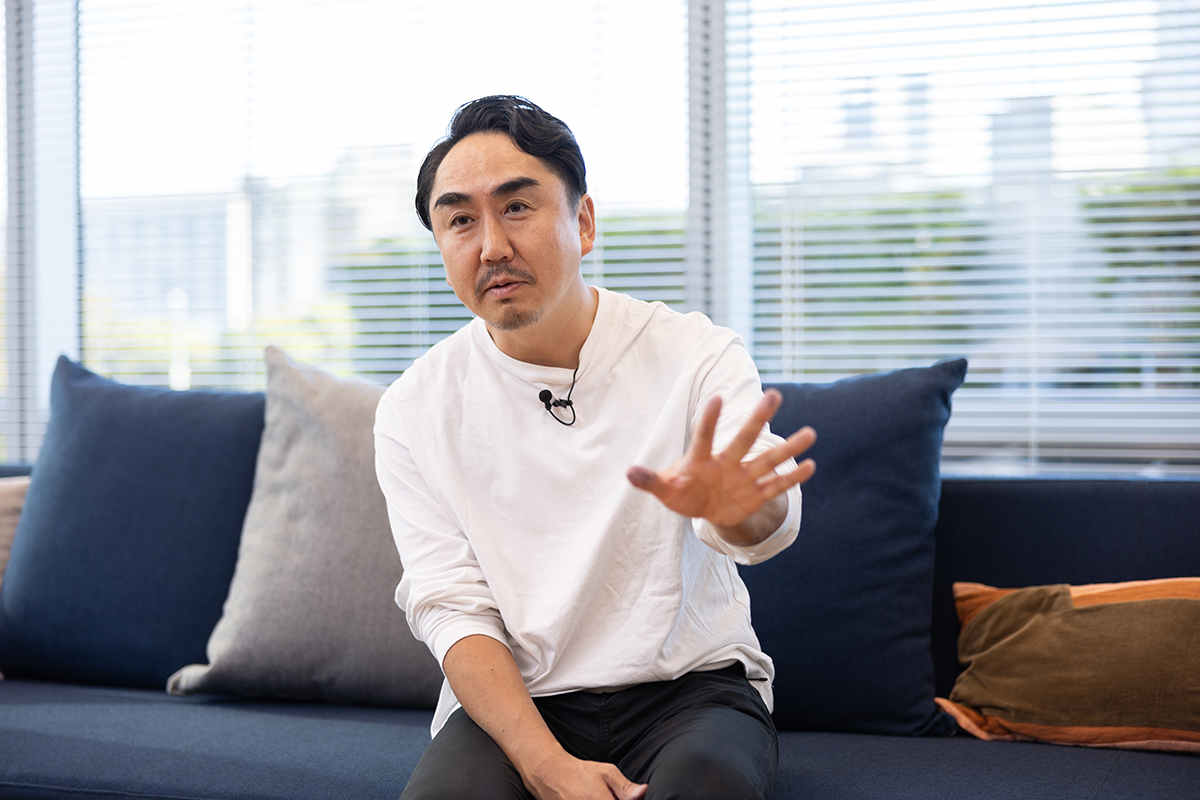
Going global with a company fit to represent Japan.
――Could you share with us how you are feeling now that the merger is complete, as well as what you hope to accomplish with this merger?
The LY Corporation Group has over 28,000 employees. For a company of our size, we really pulled off the merger at breakneck speed. I believe that this is all thanks to the fact that everyone joined forces and worked together actively. It feels like we are just now at the starting line, and I for one could not be any more excited about what comes next.
What I aim to accomplish with this merger is simple: I want to provide wonderful products that will bring joy to all of our users. And as we grow, my goal is to make LY Corporation into an invaluable presence for the IT industry in Japan and Asia and, ultimately, into a company that does business worldwide.
The new value created as a result of the merger will prove key to this whole process. As I have said all along, I want to move forward with creating an organization with a mindset to enjoy change while building up the framework to support our long-term growth.
I also feel that it is essential to cultivate the next generation of leaders to pass along the baton, and so I also want to make sure that we not only cultivate talent, but also build up frameworks for future talent cultivation.
Interview date: October 24, 2023
Note: The information covered in this article is current as of the interview date.

- About The LY Corporation Story
- Making daily life more convenient and exciting for everyone.
As our corporate blog, The LY Corporation Story will share the inside story behind the challenges that we take on to create WOW! as well as the thoughts and feelings behind them.


